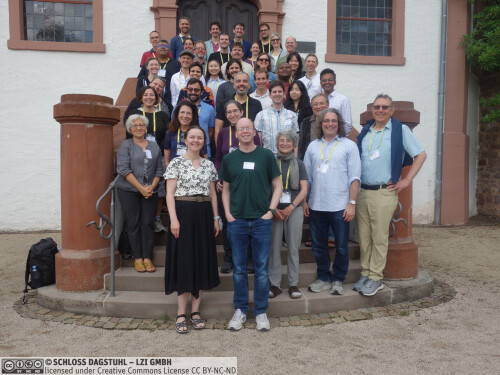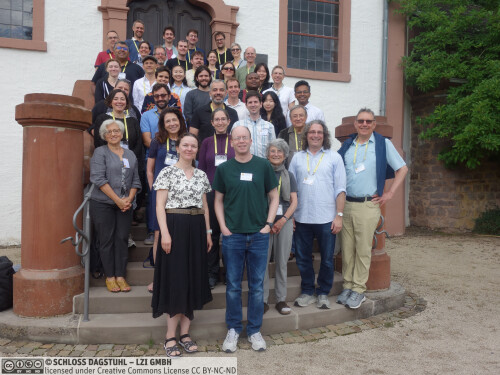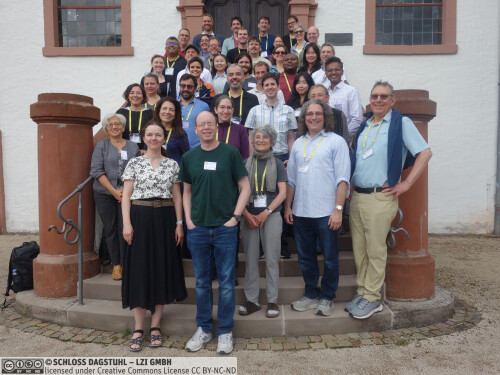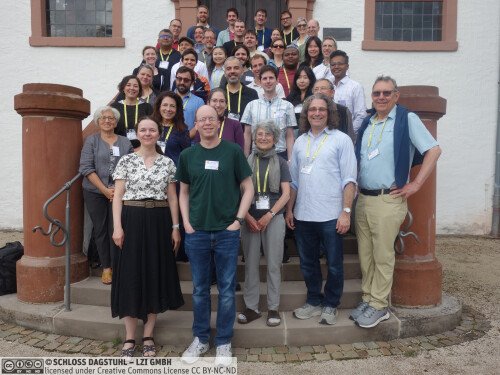Dagstuhl Seminar 25301
Linguistics and Language Models: What Can They Learn from Each Other?
( Jul 20 – Jul 25, 2025 )
Permalink
Organizers
- Anna Rogers (IT University of Copenhagen, DK)
- Nathan Schneider (Georgetown University - Washington, DC, US)
- Bonnie Webber (University of Edinburgh, GB)
Contact
- Michael Gerke (for scientific matters)
- Christina Schwarz (for administrative matters)
Shared Documents
- Dagstuhl Materials Page (Use personal credentials as created in DOOR to log in)
Schedule
In a little over a year since the release of ChatGPT, language models (LMs) have stirred concerns in government, over the possibility that citizens will come to believe the textual and spoken output of such models. Similarly, they have caused panic in education, forcing a rethink of what students are learning and how to assess it. Of concern to us here, is whether LMs mean the end of computational and/or cognitive models of human language learning and language use. Does the practical success of LMs mean that computational linguistics (and perhaps even linguistics itself) is no longer relevant? Or are we missing problems with LMs that computational linguistics (and linguistics more generally) could help us both recognize and surmount?
To have any hope of answering big questions about this technology, we need to foster interdisciplinary conversations and collaborations across the fields of machine learning, NLP, linguistics, and cognitive science. This Dagstuhl Seminar aims to facilitate such conversations and collaborations among senior experts and rising stars. In particular, the seminar poses five key questions for discussion:
- What evidence, if any, do LMs provide about human language, world knowledge, and/or cognition?
- How can LMs be used as tools for empirical research in linguistics?
- How can linguistics be brought to bear on interpreting the operation of LMs?
- How can linguistically-oriented perspectives enhance or complement LMs for greater reliability and robustness?
- What is the appropriate framing of LM-functionality, for scientists and the public?
Seminar outcomes could include joint publications that advance scientific and public understanding of language and LMs, setting the agenda for the next generation of research and development in NLP, linguistics, and cognitive science.
 Tal Linzen, Anna Rogers, Nathan Schneider, and Bonnie Webber
Tal Linzen, Anna Rogers, Nathan Schneider, and Bonnie Webber
Please log in to DOOR to see more details.
- David Adelani (MILA - Montreal, CA)
- Antonios Anastasopoulos (George Mason University - Fairfax, US) [dblp]
- Gašper Beguš (University of California - Berkeley, US) [dblp]
- Verena Blaschke (Ludwig-Maximilians-Universität München, DE)
- Ryan Cotterell (ETH Zürich, CH) [dblp]
- Marie-Catherine de Marneffe (UC Louvain-la-Neuve, BE) [dblp]
- Katherine Demuth (Macquarie University - Sydney, AU)
- A. Seza Dogruöz (Ghent University, BE) [dblp]
- Robert Frank (Yale University, US) [dblp]
- Juan Luis Gastaldi (ETH Zürich, CH) [dblp]
- Adele Goldberg (Princeton University, US) [dblp]
- Coleman Haley (University of Edinburgh, GB)
- Aurelie Herbelot (Denotation - Pritzwalk, DE) [dblp]
- Yu-Yin Hsu (Hong Kong Polytechnic Univ., CN)
- Mark Johnson (Macquarie University - Sydney, AU) [dblp]
- Najoung Kim (Boston University, US) [dblp]
- Lori Levin (Carnegie Mellon University - Pittsburgh, US) [dblp]
- Roger Levy (MIT - Cambridge, US) [dblp]
- Xixian Liao (Barcelona Supercomputing Center, ES)
- Kyle Mahowald (University of Texas - Austin, US) [dblp]
- Tom McCoy (Yale University, US) [dblp]
- Joakim Nivre (Uppsala University, SE) [dblp]
- Alexis M. Palmer (University of Colorado - Boulder, US) [dblp]
- Christopher Potts (Stanford University, US) [dblp]
- Jakob Prange (Universität Augsburg, DE)
- Siva Reddy (MILA - Montreal, CA & McGill University - Montreal, CA) [dblp]
- Philip Resnik (University of Maryland - College Park, US) [dblp]
- Anna Rogers (IT University of Copenhagen, DK) [dblp]
- Rachel Rudinger (University of Maryland - College Park, US) [dblp]
- Gözde Gül Sahin (Koç University - Istanbul, TR) [dblp]
- Asad Sayeed (University of Gothenburg, SE) [dblp]
- Nathan Schneider (Georgetown University - Washington, DC, US) [dblp]
- Noah A. Smith (University of Washington - Seattle, US) [dblp]
- Mark Steedman (University of Edinburgh, GB) [dblp]
- Tiago Torrent (Federal University of Juiz de Fora, BR) [dblp]
- Bonnie Webber (University of Edinburgh, GB) [dblp]
- Ethan Wilcox (Georgetown University - Washington, DC, US)
- Adina Williams (Meta Platforms - New York, US) [dblp]
- Amir Zeldes (Georgetown University - Washington, DC, US) [dblp]
- Alessandro Lenci (University of Pisa, IT) [dblp]
Classification
- Computation and Language
Keywords
- Linguistic theory
- Cognitive modelling
- Language models





 Creative Commons BY 4.0
Creative Commons BY 4.0
